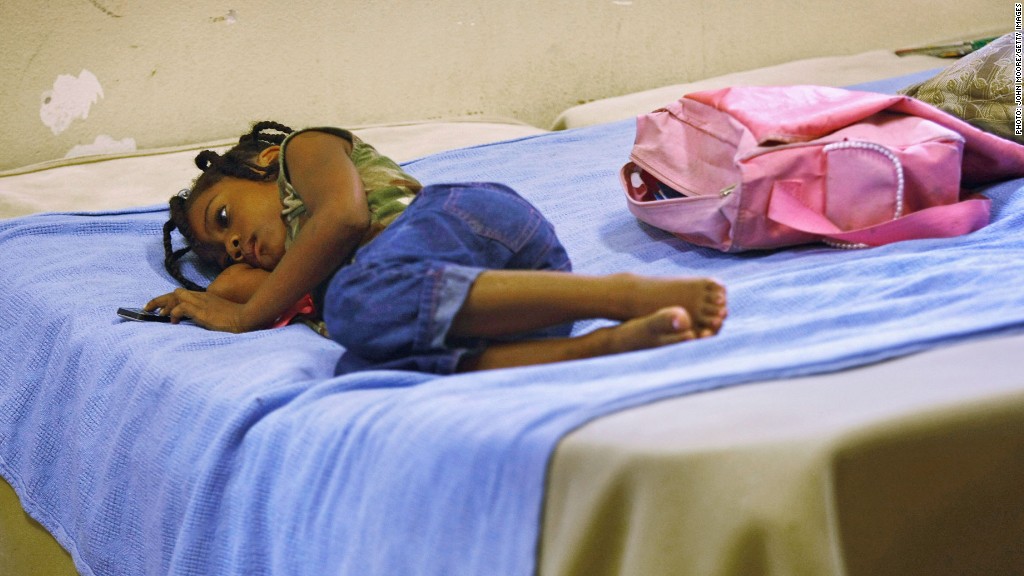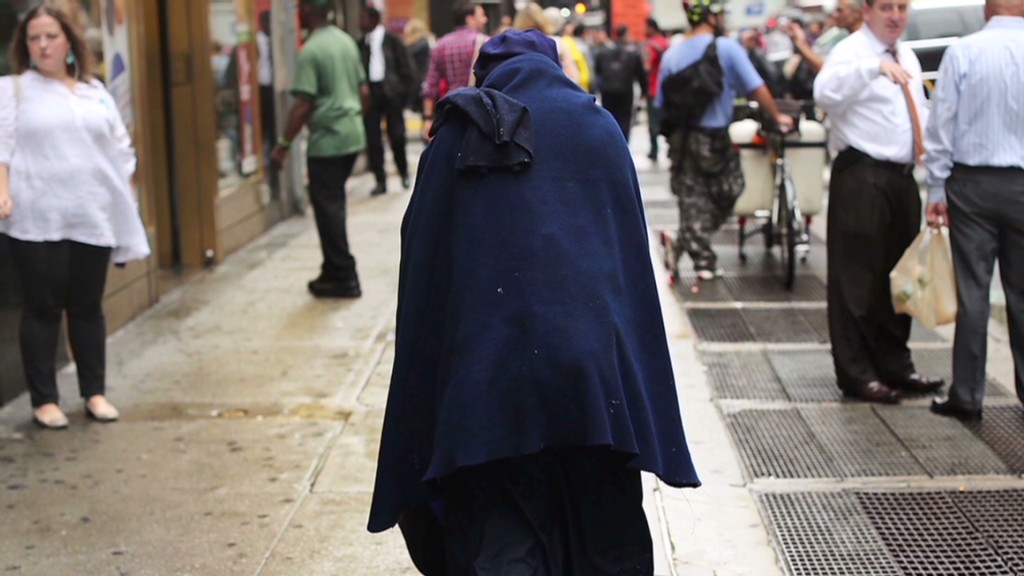
The number of homeless students in U.S. public schools is at an all-time high, according to new data.
There were 1.2 million homeless students during the 2011-12 academic year, from preschool all the way through high school. That's up 10% from last year and 72% from the start of the recession, according to the most recent data available from the National Center for Homeless Education, which is funded by the Department of Education.
Advocacy groups say continuing economic struggles are causing more students to end up homeless, meaning that they live in shelters, motels, or are staying temporarily with someone else because they have nowhere to live.
Related: How income inequality hurts America
"The recession isn't over for America's poorest families," said Barbara Duffield, Policy Director of the National Association for the Education of Homeless Children and Youth. "There's a gap between what jobs are available, what those jobs pay and what affordable housing is available."

She said school employees -- from teachers to bus drivers to cafeteria workers -- have been getting better at identifying homelessness, a factor that may also be contributing to the greater number of homeless students.
States with the biggest populations of homeless students include California and Florida, while the biggest spikes in year-over-year homelessness were seen in Maine and Michigan.
But the true number of homeless students is likely even higher than what is being reported.
Related: 15% of Americans living in poverty
"There are a lot of kids, especially in high school, who really hide [that they are homeless] and try to stay under the radar -- they're just embarrassed," said Duffield. "And parents are afraid they will be removed from their custody, so there are definitely kids that go unseen."
Homelessness is even a problem at the college level. Duffield said 58,158 college applicants indicated that they were homeless on federal financial aid forms this year -- up from 53,705 in the previous year. And that number is likely understated as well, since many families don't realize they fall into this category or don't want to admit to it.
